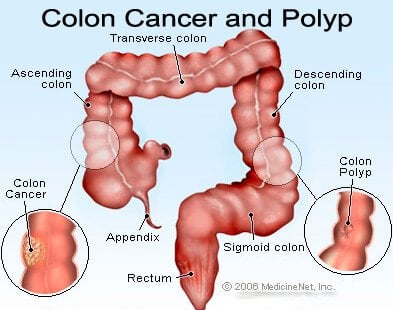Signs of Colon Cancer – Find Out What to Watch For

Colon cancer, also known as colorectal adenoma, is a form of cancer that starts in the tissues lining the colon; there are an estimated 101,000 cases of colorectal adenoma a year in America. As a result, doctors all over the country are finding that many patients are having problems with their colon.
One of the first signs of colon cancer is often pain in the lower abdominal area, or discomfort in the area where the bowel is located. This discomfort can be quite severe and is often associated with an intestinal infection or constipation. The colon may also be sore and may feel very full.
Symptoms of colon cancer often begin to show when there is constipation or diarrhea. When people have a lot of water, it is more difficult for fecal matter to move around. The colon absorbs water from the food we eat. As a result, if the colon is constipated or has a lot of water content, it becomes harder to absorb nutrients and minerals, and may develop toxins in the process.
Another common sign of colon cancer is weight loss. People with this condition often lose a lot of weight; for instance, they may gain ten pounds or more overnight and then drop it right back down. They may even experience bloating and abdominal pain. When someone loses a lot of weight in a short period of time, it is important to see a doctor for an examination.
Some people may experience a change in their bowel movements. A change may occur that makes it hard for them to expel waste or stool. A bowel movement may become less frequent or more painful. The change in bowel movement may be more than one week, or may take a few days to get better. In some people, the changes may be permanent.
Signs of colon cancer can be difficult to spot unless a patient gets diagnosed. One of the most common ways to check for cancer is to notice any lumps in the body. Lump in the abdomen is one of the early signs of colon cancer, because it tends to recur over time. Also, a change in bowel habits, including anorexia, constipation, and excessive straining can also lead to this condition.
Some experts believe that cancer in the colon is related to abnormal development of cells
Cells in the colon may be growing abnormally, and this growth can spread to other parts of the body. The colon is a very delicate area, so this is not something you want to overlook. A tumor that is found on an organ does not necessarily indicate cancer on the whole.
Colon cancer may not be a sign of cancer until it is too late. For this reason, it is best to be examined by a doctor or on your own to make sure.
One of the most common signs of colon cancer is a change in the color of feces. Colons may appear to be lighter or darker. If you have noticed a change in the color of your stool after eating certain foods, such as beans, spinach, chocolate, tomatoes, and tomato-based products, then you need to have your doctor examine you for possible signs of colon cancer.
Blood in the stool may be another symptom of colon cancer. If you notice blood in your stool and if it turns dark or yellowish when you attempt to pass stools, you need to visit your doctor for a test to determine if you do have colon cancer. Your doctor will probably ask you to undergo a colonoscopy, where a small camera is inserted into your digestive tract.
Another common sign of colon cancer is bleeding in the stool. If there is blood in your stool, this could mean that you have a tumor in your intestines. The most common type of tumor found in the colon is polyps, which cause inflammation and pain.
Anemia is another common symptom of colon cancer. You may also find yourself losing weight or becoming fatigued, or having blood in the urine.